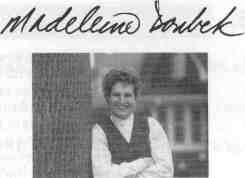 |
Home | Search | Browse | About IPO | Staff | Links |
 |
Home | Search | Browse | About IPO | Staff | Links |

It remains difficult to keep drunken drivers off our roads by Madeleine Doubek "I have enough knowledge not to drink and drive," William H. Roberts insisted to a reporter. His claim came during a county jail interview as he began serving time for a drunken driving conviction. "A couple of times I've driven drunk, but I don't drink to the point where I'm loaded and don't know what I'm doing." Roberts' record belies his claim. A former Streamwood resident, he was convicted for driving under the influence in Illinois 17 times in seven years, giving him the worst drunken driving record in the state. And he has another five convictions in Wisconsin. Roberts' record may be extreme, but it is not isolated. An unprecedented study of repeat drunken drivers by the Daily Herald found that more than 160 had at least five Illinois DUI convictions. Nearly 5, 400 had been convicted of driving drunk at least twice. The paper's examination of the complete driving histories of Illinoisans with more than one drunken driving court action on their records between 1996 and 1999 turned up 11, 779 with one DUI conviction and a supervision or license suspension for driving under the influence. (Illinois law allows court supervision for most first drunken driving arrests.) The numbers of repeat offenders were eye-opening in a state where the conventional wisdom is that attitudes about driving while impaired have hardened and that lawmakers are on top of the problem. After all, Illinois, unlike most
Consider the history of former Naperville resident Kenneth Davis. He was arrested for drunken driving in 1995. Although he had seven previous DUI convictions, he served a total of only 66 days in county jail. Davis has been arrested, convicted of DUI, jailed and returned to the streets a total of 12 times in Illinois. Judges, including Patrick McGann, the supervising judge for Cook County's traffic court, point to studies suggesting jail time is not an effective method for stopping DUI recidivism, though victims and anti-drunken driving activists argue it sometimes is the only way to keep these offenders from driving. The newspaper's investigation and a series of deadly drunken driving accidents last summer prompted Democratic Secretary of State Jesse White to propose a legislative reform package. He wants mandatory jail time and vehicle immobilization options for motorists caught driving illegally, Breathalyzer ignition devices installed more often on repeat offenders' vehicles and increased penalties for those whose blood alcohol level is twice the legal limit or more. GOP Gov. George Ryan echoed the concerns of legislators when he suggested immobilizing repeat offenders' vehicles may end up penalizing or stigmatizing family members, but Susan McKay, the ex-wife of a multiple DUI offender, encourages that move. "Anybody living with somebody like this is going to be working full-time and using their own car," she says. She wants dealers to stop selling cars to repeat drunken drivers. Some anti-drunken driving activists called for a uniform system to evaluate and treat drunken drivers. Ryan, meanwhile, called for mandatory treatment or counseling. He and others also have suggested it may be time to end supervision for a majority of first-time DUI offenders. Judges argue that move would clog the court system. Defense lawyers will lobby against many of the attempts at solutions to the repeat drunken driving problem, and some in the powerful liquor lobby may join them. Changing drunken driving laws never has been easy in a Capitol where drinking remains the recreation of choice for many. Will legislators, judges, lawyers, counselors and others embark on the tough search for workable solutions or choose the path of denial, like 22-time offender Roberts? Madeleine Doubek is assistant metro editor/projects & politics for the Daily Herald.
www.uis.edu/~ilissues Illinois Issues October 2000 | 45
|